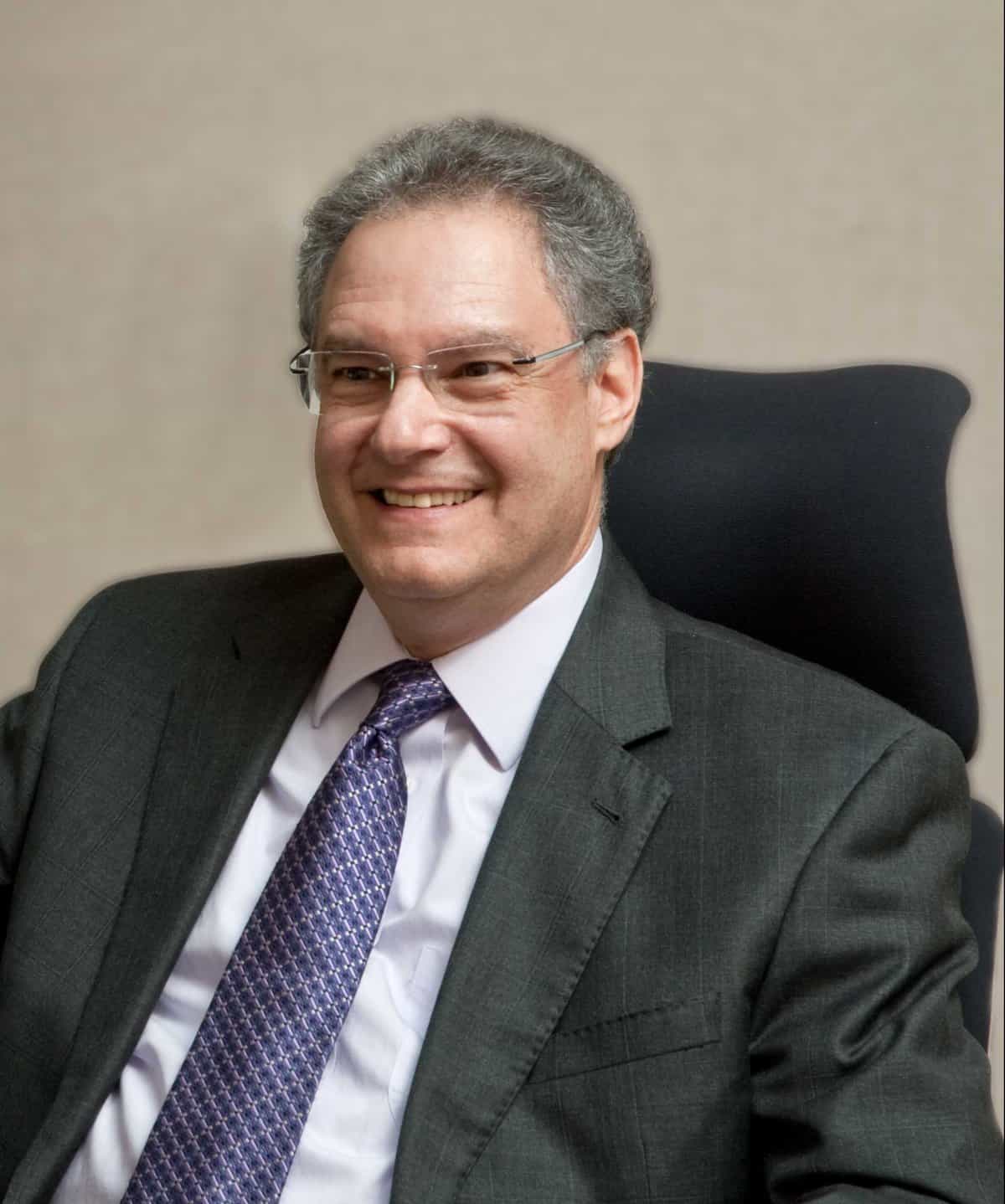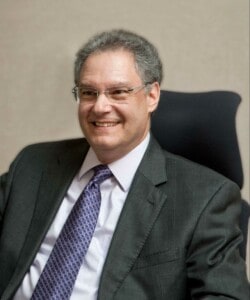As an OBGYN, Morris Elstein helped many infants enter into this world, placing them into the loving arms of their parents. He believes every delivery was an opportunity for him to witness God’s work.
Born in Augusta, Ga. on May 11, 1951, Elstein’s mother’s family came from Eastern Europe in the mid 1800’s, and his father’s family immigrated to New York from Lithuania in the early 1900’s.
Living in a multigenerational home, his maternal grandmother ran the household: cooking, baking and always entertaining. His parents owned and operated a dry goods store. And the family’s housekeeper, “Annie Boo” became a surrogate mother, bathing, nurturing, feeding and protecting him, his two brothers and sister.
Always invited to attend services with his grandfather, Elstein went to synagogue often. “It felt safe and inviting,” he describes, remembering the joy the men shared, preparing and partaking in the “Suedah Shelishit” meal at the end of Shabbos.
Close to his grandmother, he stayed by her bedside when she broke her hip, realizing that he wanted to be a doctor as he watched the professional caregivers. Sadly, his grandmother passed away when he was eight years old.
Elstein’s family’s activities centered around the Orthodox shul where he attended Friday night, Saturday morning, and Saturday evening services, and then Sunday school.
In second grade, he asked if he could attend Hebrew School four times a week instead of just two. He and his friends were competitive, pushing each other academically. Before his Bar Mitzvah on June 20, 1964, Elstein read Hebrew fluently, chanted the Haftorot, and engaged in Talmud study. He led services the entire week of his Bar Mitzvah, ready to accept the responsibilities of being a Jewish adult in the eyes of his community.
As a teenager, Elstein attended Shabbat services with his friends. He often led Sunday morning prayers and then afterwards they all ate breakfast together, picked a topic to study, then played basketball or football. During his adolescent years, he belonged to NCSY—the Orthodox youth group.
Elstein saw an article in Life magazine when he was 14 years old, showing the results of a pregnant woman’s ultrasound. He was amazed by “the convergence of processes that had to come together to create the perfect human body.” He concluded that, “life had to be divinely created,” never questioning that belief again.
Offered a full scholarship to Baltimore’s Yeshiva, he preferred to spend most of his high school years in Augusta. Elstein walked to synagogue on Shabbat, and then after the kiddish luncheon, walked to Augusta College’s library to read magazines all afternoon. When the Yom Kippur War broke out, he walked from high school to synagogue, to sit alone and pray.
During his first year at the University of Georgia in Athens, he became a member of AEPi and lived in the fraternity house. Definitely the most well versed in Jewish practice, Elstein became the go-to-guy for Jewish prayer and religious questions. With his decision to get more serious about academia, he moved out of the house a year later and declared Biochemistry as his major.
Only choosing to date Jewish women, Elstein consented to a blind date with an acquaintance’s sister. Sharon Rainbow was a high school senior performing in a play on campus and became a UGA freshman the following fall. The couple married on Dec. 28, 1974 when Sharon was a junior, majoring in medical record administration, and Elstein attended the Medical College of Georgia.
They relocated to Norfolk for his residency at Eastern Virginia Medical School and became members of B’nai Israel. They found Rabbi Bornstein to be compassionate and sincere.
In 1981 when they moved to the oceanfront, they joined Temple Emanuel’s congregation of approximately 220 families. Rabbi Turschik’s service was casual and participatory. Although different from his Orthodox upbringing, Elstein quickly became involved. At 30 years old, he was certainly one of the youngest board members. That same year, his first son, Nathan, was born; and Jacob followed two and a half years later. Sharon taught Sunday school and worked in the library.
In 1977, as a learned man and Jewish doctor, Elstein was invited to perform his first bris. With no mohel in Tidewater, Dr. Bill Reingold had been performing some ceremonial circumcisions. Hospital instruments and a siddur in hand, accompanied by a rabbi, Elstein performed the procedure.
“I felt privileged to perform the ritual and naming,” relates Elstein. “I added a drash (a story) so that the ancient ceremony felt relevant to modern times.” The calling for a local mohel became a gateway to a new career.
In 1992, Elstein enrolled in a week-long Brit Kodesh program at the Jewish Theological Seminary in New York City. The curriculum gave him the opportunity to marry his medical practice with his religious observance. He felt humbled to meet the brightest people in the global Conservative Jewish movement.
Elstein studied text six hours a day. One course in particular called Mohel and Personal Piety changed his life, presenting a chance for self-reflection. “I began to eat only Kosher foods outside my home and I became more Shabbat observant,” Elstein admits. “I consciously incorporated the sacred into my life and repeatedly asked the question, ‘Where does God fit in?’”
Through the years, Temple Emanuel evolved into his “family of choice.” Most of his friendships were born from his synagogue involvement. He says, “It is a very special congregation because it is small and intimate.”
As president of the temple since June 2010, Elstein wants to share the synagogue’s uniqueness with others. The congregation has recently come together for several well received community events: An open “Pink tea” for cancer survivors; presentations from visiting Jewish educators, a public concert at the Roper Theater with Neshama Carlebach, and a heartfelt return concert by the performer, just 10 months later to honor the memory of Sharon.
During Rosh Hashanah, 2010, Sharon discovered she had leukemia. She had just attended Jacob’s graduation from Oregon State in June, thrilled that her youngest child had earned degrees in teaching and engineering.
Starting her treatment with hope, months later, Sharon learned that she needed a bone marrow transplant. In March of 2011 while at Johns Hopkins, she received the bone marrow from her son, Jacob. Upon the operation’s completion, a prayer service from Temple Emanuel was skyped into the hospital room to comfort the family.
Elstein was by his wife’s side through her entire illness, and he has written a journal on the website “Caring Bridge,” mindful that “he was given a ‘gift’ that had to be returned….” He will be forever grateful that Sharon had the opportunity to meet Jacob’s fiancée, Leah, and help plan their wedding that took place in Virginia Beach on July 1, 2012.
“We are constantly tested to see if we can be the person that we say we are. Through all the pain and darkness, we must pick ourselves up again and move forwards no matter how difficult it may be,” Elstein says with sadness.
Through the months that followed, Elstein travelled out west to visit his children. Jacob and Leah live in Takoma, Wash., where Leah is a cantor and Jacob teaches high school math and physics. Nathan is a farmer, sushi chef, and baker in a northern California town of 324 people. Together, father and son have shared wonderful hiking adventures.
Elstein donates platelets regularly to the American Red Cross in Norfolk. On Dec. 4, 2011, Temple Emanuel held a blood drive in memory of Sharon. Elstein went to honor his late wife, never expecting to meet a woman with whom he would soon fall in love.
Devorah Ben-David, living in Glen Allen, Va., was assigned to write a story about the blood drive for the Beacon section of The Virginian-Pilot. Over the phone, months later, their friendship began while Elstein donated platelets in a procedure that took two hours. Now engaged, the couple plans to marry on Jan. 19, 2013.
Travelling for work as a journalist, Ben- David now has a new assistant. As a hobby, Elstein captures her stories in photographs. “Life’s journey is full of self-discovery,” Elstein says. “Circumstances unfold, and we can’t control them. All we are able to do is bear witness to their magnificence, experience the awe, and appreciate God’s blessings.”
by Karen Lombart


